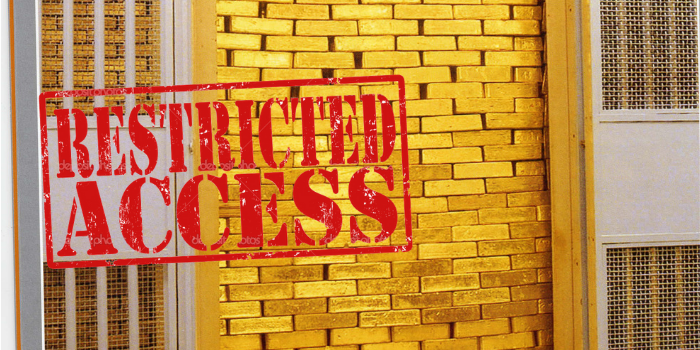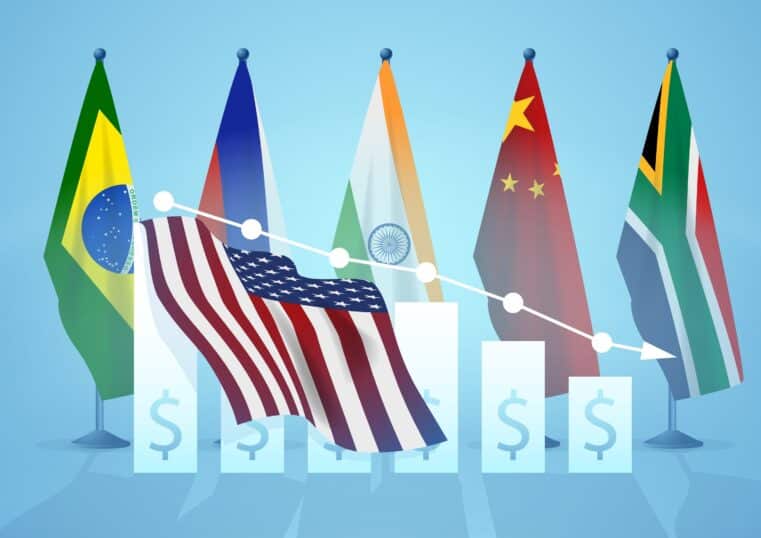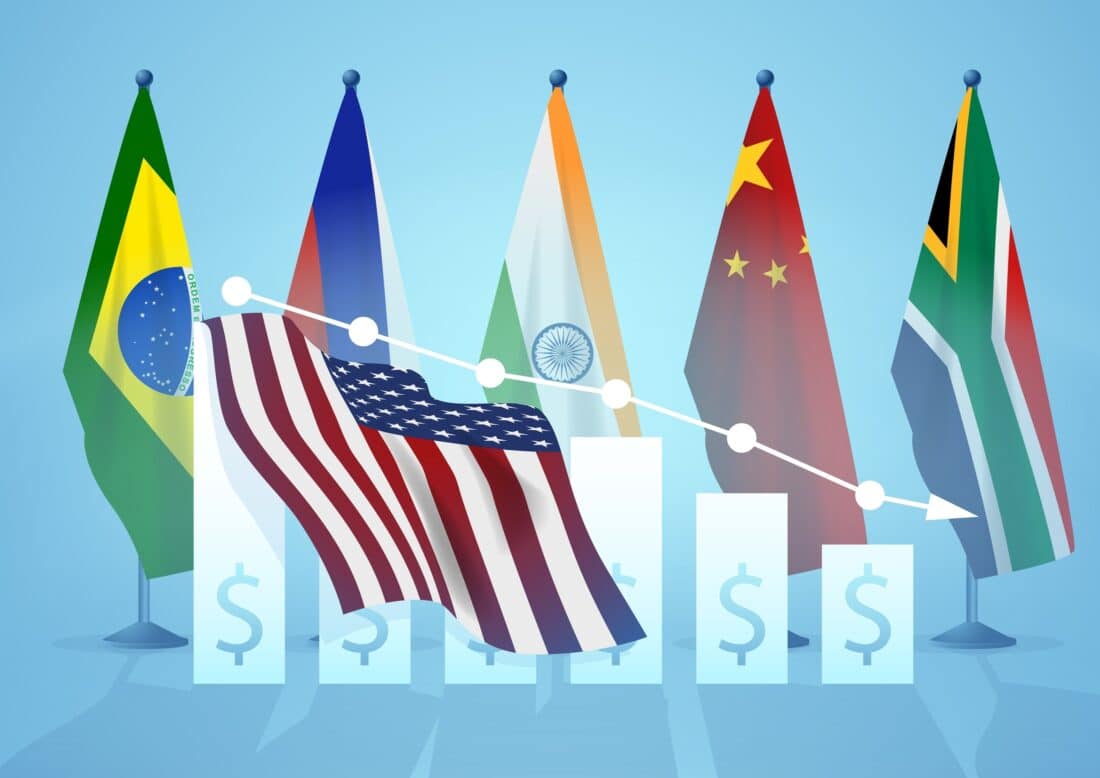
Central Banks Hold Gold Hostage, Governments Aim to Seize It
When the average investor thinks of gold, he or she often conceives of something radically different from the notions that governments and central banks hold.
For the average investor, gold is a paper wealth generator. They buy and sell gold with the hope of generating more paper money.
This accounts for the average investor’s preference toward gold ETFs rather than the real thing. After all, isn’t paper wealth the same thing as real wealth (a rhetorical question)?
Government and central banks may speak of gold as a marginal asset, but their actions betray the exact opposite.
Governments and central banks hold gold reserves. And unlike average investors, whose penchant for speculation often supersedes their desire for wealth, governments and banks buy gold to mitigate risk and reduce speculation--that is, to hold “sound money.”
The Wall Street Journal may claim that holding gold is like owning a “Pet Rock” (remember those from the 1970s?).
If that’s the case, why are governments and central banks across the globe still actively accumulating these “pet rocks” for their reserves? The claim doesn’t quite hold true.
Italy’s Gold Ownership Debate (and why you should care)
Contrary to the popular narrative that great events in history originate in a series of smaller yet momentous events, many world-changing moments actually happen in the margins, on the sidelines, during the quiet hours when most people are asleep.
Take the debate over the “true” ownership of Italian gold. Unless you follow Italian politics, you might have snoozed past this debate.
If you’re not caught up with what’s happening, here’s a brief overview.
Italy’s central bank, the Banca d’Italia (or Bank of Italy) supposedly owns 2,451.8 tonnes of gold, making Italy the third largest holder of gold reserves in the world.
The bank claims that 1199.4 tonnes are being stored in the Bank’s gold vaults in Rome, while most of the other half is being stored in the Federal Reserve Bank of New York. An even smaller balance is being held in the Bank of England in London and in a Bank for International Settlements account in the Swiss National Banks’ vaults in Switzerland.
Got that so far? Here’s where it gets messy.
As you know, Italy is ruled by a coalition government comprised of different political parties.
One party called M5S (Italian Five Star Movement), led by influential activist, comedian, and blogger Bepe Grillo, proposes selling roughly 500-600 tonnes of gold as a one-off solution to avoid having to increase taxes (VAT, or value-added tax) in order to fund government programs.
According to Grillo, this solution would still leave Italy as the fourth-largest holder of gold reserves in the world.
As Grillo writes in his blog:
“These sales would allow us to remain in any case among the top holders of gold reserves worldwide, moving from third to fourth place. Moreover, these quantities could easily be purchased by absorbing the demand of some countries such as China, India, Russia, Brazil, South Korea and other so-called emerging countries that have already expressed their intention to increase their gold reserves.”
On a separate front, the League, one of M5S’s coalition partners, wants to place all of Italy’s gold under the direct ownership of the Italian State.
Claudio Borghi, the League’s spokesperson, reportedly submitted a bill to parliament in support of changing Italy’s gold ownership status.
The problem is, that by law, Italian gold is owned by the Bank of Italy. And the Bank of Italy is owned by shareholders comprised mostly of other commercial banks.
So in order for the Italian State to take ownership of Italian gold, they would have to seize it.
Italy’s Deputy Prime Minister Matteo Salvini claims that Italy’s gold reserves are “the property of the Italian people, not of anyone else.”
But “the people” he is referring to is none other than the bureaucracy of the State that subsumes whatever notion of individuality or privacy exists within the term “the people.”
If that were not the case, then gold would remain in private hands, albeit “corporate” private ownership.
If this teaches us anything, it’s that the value of gold as sound money is held by almost every entity other than the average investor who sees it as a mere speculative asset.
Sure, it can be a speculative asset. But ultimately gold is money. Otherwise, governments and central banks wouldn’t be accumulating gold to the degree to which they are currently engaged (central banks bought more gold last year than any time since 1968).
Also, the notion of selling gold for paper money. It may be fine for some countries who see no better means of building a more sound economy. Italy may not be the best model to follow: their economic and political system is in shambles.
Last but not least, the move to confiscate private gold assets. Don’t think that this can’t happen in the US.
Democratic Socialism ala the Green New Deal or MMT is popular among a growing majority of Americans. As we covered last week, a large majority of Americans--from the left, right, and center--actually favor money confiscation (depending on how you politically dress-up the idea).
This new popular socialist trend leans toward spending more, spending often, and printing more money to cover the country’s bills.
Such a program will eventually dilute the dollar and crash its purchasing power. Have we forgotten about inflation or the possibility of hyperinflation? With MMT, none of this matters as no debt can be considered “real debt.”
And finally, seizing the only sound money left, the country’s gold reserves and selling it to fund more public programs. This is what might end up happening in Italy in the very near future.
Can such a thing happen in the US, especially if the current democratic socialist fervor were to transform ideological sentiment into legislative practice?
Again, don’t think that it can’t happen. The winds of American “democracy” are changing. And it might not be blowing in the direction of freedom and privacy.
Diversify your assets with gold. Store your gold privately. And remember that gold is more than just a mere speculative instrument. It’s money. Sound money.











